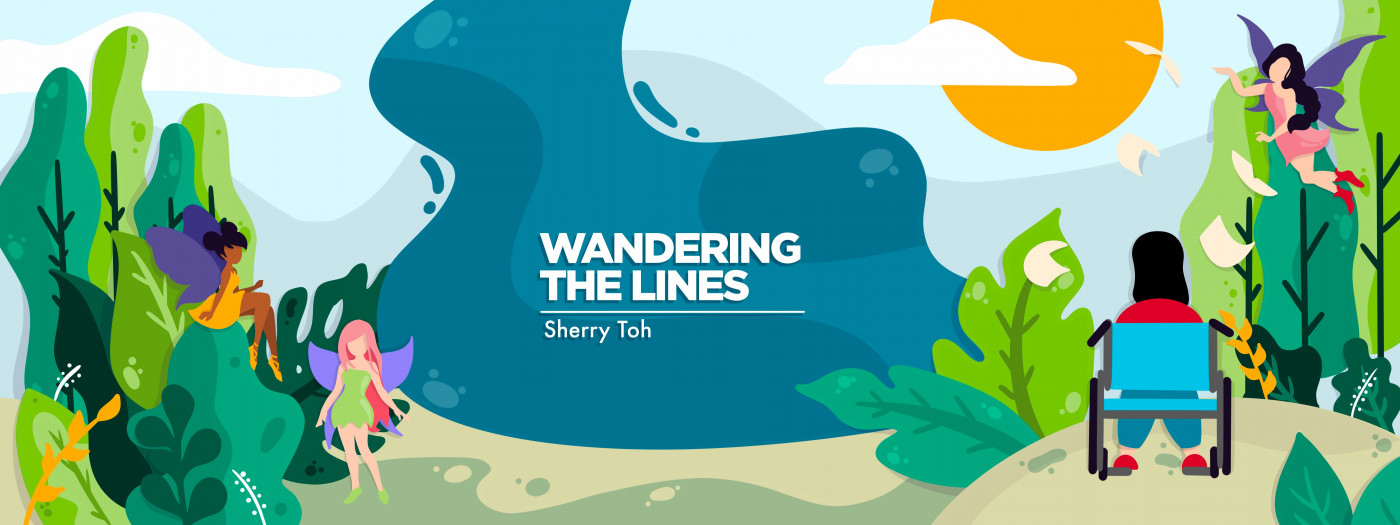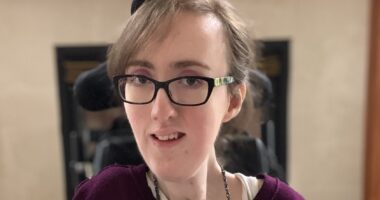We need to redesign society’s systems for true disability inclusion
Our societies weren’t designed to allow disabilities to fit, a columnist argues

“So, how are you? What have you been up to?” I asked my friend Phoebe Chua back in November. It’d been a decade since we last saw each other. But we’d spontaneously reconnected and decided to go to a movie together. I wanted to know everything about her life that I’d missed.
“Oh, you know, it’s the same-old, same-old with me. I’m doing my best,” she said. “But, uh, did I tell you I stopped studying after secondary school?”
I blinked at Phoebe. No, she hadn’t told me. In our childhood days, I was the sole person in our group of friends who never entered the formal education system. But Phoebe and the rest, despite having either muscular dystrophy or SMA, all went to school. Now that we’re in our 20s, I assumed I’d be the only one struggling to earn her keep as a result of a lack of education. I didn’t expect to be joined by Phoebe.
As it turns out, Phoebe and her parents had to make a similar decision as mine did. Because her physical health was worsened by her mental health, which was worsened by slipping grades, she had to choose: live healthily but struggle to find a job or trudge on in school and pray she’d survive.
This just isn’t working
A while ago, I came across a TikTok post by Erin Rackham, a therapist who over the last year has been a vital resource for my understanding of neurological disabilities.
In the video, she talks about one of her more painful realizations after being diagnosed with autism in adulthood: that her disability made her “the problem” when she was around other people throughout her life. This was because her particular presentation of autism meant that her nervous system would perceive even just a little discomfort as a “10 out of 10” threat. It’s not something she could help.
Erin goes on to say, “It just is what it is. It’s never going to work in your systems, it’s never going to work with capitalism, it’s never going to work with traditional schooling. It’s just not.”
She wanted a different answer. “But there really isn’t a different answer. Now that I have my kids, and my kids have the same neurotype as me, I’m like, ‘Oh. Yeah, it’s us.’ Like, we don’t fit in the puzzle of life, of society. There’s just no places for us. So we just have to carve out our own, I guess.”
It’s a monologue that stuck with me ever since I heard it, because SMA dictated that I wouldn’t fit into traditional schooling, follow a traditional career trajectory, or travel the ideal road that every parent wants their child to take. I had to carve out a path for myself, with the help of other rare disease patients like me and a ton of privilege.
There are so many people like Phoebe and me. But even as we settle into the places we’ve carved out, it doesn’t mean it’s not hard, nor that we don’t still have to actively wrangle our symptoms into behaving according to the demands of society.
New architects for a redesigned age
Our societies and their systems weren’t designed to allow disabilities to fit within them. The architects simply didn’t have the necessary knowledge to make that possible.
But we now live in an age of information. It’s never been easier to look up a subject or find experts. If we wish to, we could redesign the systems in place, rather than merely make accommodations for people with disabilities. It’ll be a huge overhaul — and prioritizing feedback from minorities on what is and isn’t working would be just the first step — but it’s possible.
(If you’d like a place to start other than SMA News Today, I recommend reading “Care Work: Dreaming Disability Justice,” “Disability Visibility: First-Person Stories from the Twenty-First Century,” and “Not Without Us: Perspectives on Disabilities and Inclusion in Singapore.” Each book will give you a wealth of experts to look to.)
As we make progress, it’s important for those of us with privilege to do what we can for our communities. I wouldn’t be where I am today without being well-connected through my friends, and I plan to do what I can to pass my good fortune on. Even if all you have to offer is emotional support (like what I currently have to offer Phoebe), I guarantee you that it goes a long way.
I live in the hope that, one day, no one will have to carve out space in society for themselves, because society will already belong to us. Are you with me?
Note: SMA News Today is strictly a news and information website about the disease. It does not provide medical advice, diagnosis, or treatment. This content is not intended to be a substitute for professional medical advice, diagnosis, or treatment. Always seek the advice of your physician or other qualified health provider with any questions you may have regarding a medical condition. Never disregard professional medical advice or delay in seeking it because of something you have read on this website. The opinions expressed in this column are not those of SMA News Today or its parent company, Bionews, and are intended to spark discussion about issues pertaining to spinal muscular atrophy.









Leave a comment
Fill in the required fields to post. Your email address will not be published.